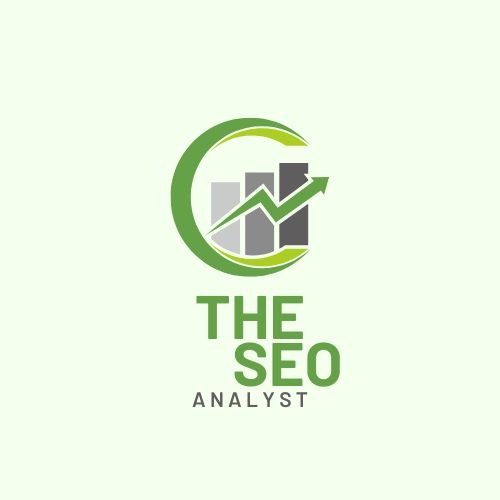Introduction
In today’s digital landscape, businesses face a constant dilemma regarding online marketing: should they invest in search engine optimization (SEO) or Google Ads? Both methods offer unique advantages and play crucial roles in driving website traffic and conversions
.
This article will dive deep into the SEO vs. Google Ads debate, uncovering their differences, benefits, drawbacks, and ideal scenarios for each approach.
Understanding SEO and Google Ads
What is SEO?
SEO, short for search engine optimization, refers to improving a website’s visibility and organic (non-paid) search rankings on search engine results pages (SERPs).
It involves various strategies, such as optimizing website content, meta tags, backlink building, and technical enhancements, to enhance a website’s relevance and authority in the eyes of search engines.

What are Google Ads?
Google Ads, formerly Google AdWords, is an online advertising platform enabling businesses to display ads on Google’s search engine results pages and its extensive advertising network.

The system uses a pay-per-click (PPC) framework, in which advertisers compete for particular keywords and are charged only when users click their advertisements. Google Ads offers businesses immediate visibility and the opportunity to drive targeted website traffic.
Key Differences between SEO and Google Ads
Cost
One of the primary differences between SEO and Google Ads is the cost associated with each approach. SEO typically requires time and resources upfront but can yield long-term results without ongoing expenses.
On the other hand, Google Ads provides instant visibility but requires a budget for ad spend, with costs varying based on factors like keyword competition and targeting settings
.
Placement
Regarding placement on search engine results pages, SEO focuses on organic listings displayed below paid ads. Organic results are earned through optimization efforts and are trusted by users as unbiased recommendations from search engines.
Google Ads, however, places ads above and below organic results, marked as “Ad” or “Sponsored,” making them more prominent but potentially less trusted
.
Long-term vs. Short-term Results
SEO is a long-term strategy that aims to build sustainable organic traffic over time. It requires consistent effort, as it can take months to see significant results.
In contrast, Google Ads deliver immediate visibility and can generate instant traffic, making them ideal for short-term campaigns or time-sensitive promotions.
Control and Flexibility
Regarding control and flexibility, Google Ads offers advertisers greater control over various aspects, such as ad copy, targeting options, and budget allocation. Advertisers can quickly test different ad variations and adjust campaigns in real time.
SEO, while providing less control over search engine rankings, allows businesses to optimize their website’s overall performance and user experience, benefiting organic visibility in the long run.

Pros and Cons of SEO
Pros
SEO has several advantages that make it a preferred choice for many businesses. It offers long-term visibility, as top organic rankings can drive consistent traffic and establish user trust. It is cost-effective in the long run, as organic clicks do not incur direct costs
.
Additionally, SEO allows businesses to improve their website’s overall user experience, which can lead to increased conversions and customer satisfaction.
Cons
SEO also has its challenges. It requires continuous effort and updates to keep up with evolving search engine algorithms. Results are not guaranteed, and competition for top rankings can be fierce, especially in highly competitive industries.
SEO is a gradual process that can take time before significant improvements are seen.
Pros and Cons of Google Ads
Pros
Google Ads offers numerous benefits for businesses aiming to boost their online presence quickly. It provides immediate visibility on search engine results pages, ensuring companies appear at the top for relevant keywords.
It allows precise targeting options, enabling advertisers to reach specific demographics, locations, and interests.
Google Ads also provides valuable data and insights, allowing businesses to optimize campaigns for better performance.
Cons
Despite its advantages, Google Ads also has some drawbacks. It requires a budget for ad spend, which is feasible for some businesses. Advertisers must continuously monitor and optimize campaigns to maximize results, which can be time-consuming.
Moreover, ad clicks do not guarantee conversions, and companies may need to optimize conversion rates to improve overall campaign effectiveness.
When to Use SEO
Businesses should consider SEO for long-term visibility and organic traffic growth. SEO is suitable for companies with limited advertising budgets, as it offers a cost-effective way to drive traffic without ongoing expenses.
It is also ideal for establishing industry authority, building user trust, and enhancing website performance.
When to Use Google Ads
Google Ads is a viable option when businesses seek immediate visibility, quick results, or have time-sensitive promotions. It is effective for companies with advertising budgets, as it requires ad spending to drive traffic.
Google Ads is handy for businesses targeting specific demographics, locations, or those in highly competitive industries where organic rankings may be challenging to achieve.
Combining SEO and Google Ads
To maximize online visibility and conversions, businesses can combine the power of SEO and Google Ads.
By using both approaches, companies can achieve synergy, where SEO efforts enhance organic visibility while Google Ads drive immediate targeted traffic.
This combined strategy allows businesses to cover a broader spectrum of search results, increase brand exposure, and maintain a consistent presence throughout the customer journey.
Measuring Success
Measuring success in SEO and Google Ads requires tracking relevant metrics. In SEO, businesses can monitor organic search rankings, website traffic, conversion rates, and engagement metrics like time on page and bounce rate.
Google Analytics provides valuable insights in this regard.
In Google Ads, businesses can track click-through rates (CTR), cost-per-click (CPC), conversion rates, and return on ad spend (ROAS) to evaluate campaign performance and optimize accordingly.
Conclusion
In the SEO vs. Google Ads dilemma, there is no one-size-fits-all solution. Both approaches have distinct advantages and can contribute to a comprehensive online marketing strategy.
Understanding each method’s differences, benefits, and drawbacks is crucial for businesses to make informed decisions based on their goals, budget, and timeline.
By leveraging the strengths of SEO and Google Ads and adopting a holistic approach, businesses can optimize their online presence and drive clicks and conversions.
FAQ
This question has no definitive answer, as SEO and Google Ads offer unique advantages. SEO provides long-term organic visibility and cost-effectiveness, while Google Ads delivers immediate visibility and precise targeting options. The choice depends on business goals, budget, and timeline.
Absolutely! Combining SEO and Google Ads can be a powerful strategy. SEO efforts can enhance organic visibility, while Google Ads can drive immediate traffic and provide valuable data. Together, they can maximize online presence and increase the chances of conversions.
SEO is a gradual process, and it can take several months to see significant improvements in search rankings and organic traffic. The timeframe varies depending on website authority, competition, and the effectiveness of SEO strategies.
The cost of Google Ads depends on various factors, such as keyword competition, targeting options, and budget allocation. Advertisers control their spending, and it is possible to set daily budgets and bid amounts based on affordability and campaign goals.
Both organic and paid search have their merits. Organic search (SEO) offers long-term visibility, builds trust, and provides cost-effective traffic. Paid search (Google Ads) provides instant visibility, precise targeting, and immediate results. The effectiveness depends on a business’s specific goals, industry, and budget.

A prominent SEO and Business Analyst with 5+ years of experience helping businesses achieve growth



